Amiel Glastone Interviews Hannah Moscovitch
(Writer, “Old Stock: A Refugee Love Story”)
January 03, 2020
Old Stock: A Refugee Love Story opens on January 24th
Amiel: I know that this is based on your great grandparents.
Hannah: My great grandparents. Yes.
Amiel: Where did the idea of the show come from? Not about writing about your grandparents, but you know what I mean, the actual show in the form that it is.
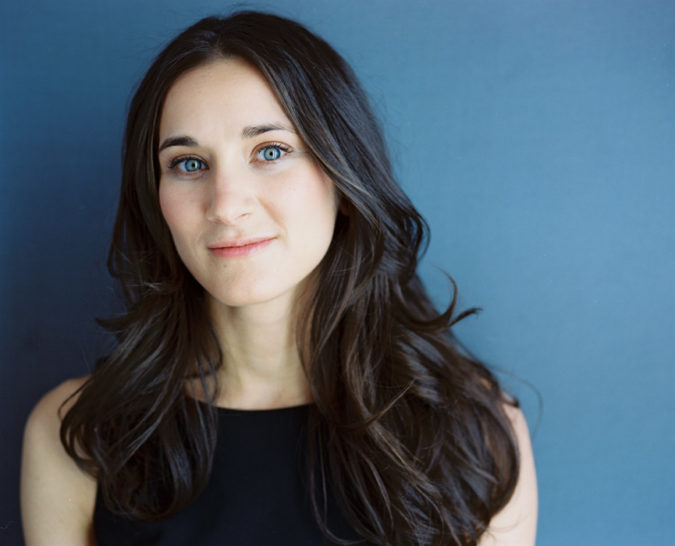
Hannah: Yeah, it’s all in pieces. So — Christian and Ben wanted to make a show together and they were at the house, hanging out together and with a piano.
Amiel: I assume this is the same process that he’d done with Hawksley Workman.
Hannah: In this case, he didn’t have an idea for a show, but he was on a jag of working with musicians because it was so great to do it the first time. So Ben Caplan is a musician, lives in Halifax, and we both loved his, his music, his songs and his voice. And so they were at the house, and I like Ben’s music a lot and I sometimes would say to Christian, (who’s my husband) that I would like to do the project with them. I’d be like, “yeah, you should get me to do it with you. Like, what are you thinking? Not hiring me to do it. You’re crazy!” Like that.
Amiel: And Christian’s response was “I want to make this with Ben, not with you.”
Hannah: Yeah. His response was, “I don’t think we need you, and back off and back away from my projects. “And, you know, he was just like, “get off of me.”
Amiel: “We don’t have to make everything together.”
Hannah: Yeah. He was also, honestly, he was like, “you’re busy,” which I was. “I don’t want to, you know, involve you in the project and then have you not write anything for two years. That won’t be fun.” So then around the same time, we had a son together, Elijah. So people were coming to Halifax to visit us and to visit Elijah. So we had relative after relative, we were booking them in like a hotel to come and see him. And I think we were at the end of our ideas about where to take relatives who were coming to town. There’s only so many times you can go to the botanical gardens, or up Citadel Hill. So my Aunt Enid came at the sort of the end of the string of people coming in. We thought, “oh, well we’ll take her” — it was fall by then and Elijah was two months old — so we thought, “oh, well we’ll take her to Pier 21,” which is the museum in Halifax. Pier 21 is like Ellis island for Canadians. It’s where anyone who came in by boat, it’s one of the main ports of entry for Canadians, or it was until flights. So we walked around it, it’s a great museum. There’s a room that’s very unprepossessing at the back. It looks kind of like an office. If you go in there, they will track for you when your family came in. So my aunt Enid Moscovitch knew a lot more about our family than I did and came from a really poor Romanian Jewish family who came in fleeing pogroms with very little, like one potato. So it’s not the kind of family where anybody tracks the family because they’re busy, you know, surviving. So she knew more than me. I didn’t know anything. She actually had names like Chaim Moscovitch and Chaya Yankovich. Moscovitch I knew because it’s also my last name. So I was like, “oh, Moscovitch I know.” But that was about it. Nothing beyond Moscovitch.
Amiel: Enid is your father’s sister?
Hannah: Yeah. It would’ve been her grandparents who came in and my great grandparents, so she was just one generation closer. I didn’t even know their names. I was also there with Elijah, so you know, two months old, he’s with us and in his stroller and I was rocking his stroller to keep him calm as we went through this process, which is, you know, funded by the Canadian government to allow you to find your ancestors who would’ve come in. So we started to find them, which was oddly moving.
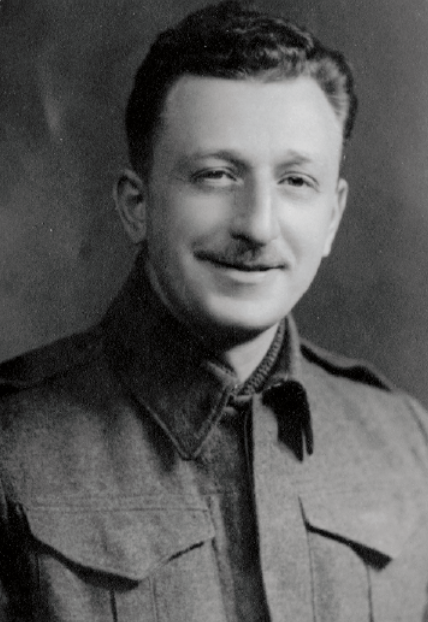
Amiel: How is the, is it on a computer or is it a, is it a big book?
Hannah: A big magic book and you just say their name and then the book flips like Harry Potter.
Amiel: That would be a serious tourist attraction.
Hannah: No, it’s on a computer and they’re very nice in there they’re very kind. “Ooh, you know, this is, I love the Romanians”. They’re nerdy. They’re like, “Ooh, the Romanians and Cyrillic, this is exciting,” you know, “it’ll be really fun to try and track this down because the spellings you know, were really weird coming in”, so they’re harder to track. So a lot of brackets and weird punctuation to program the computer to look for various possible spellings. But we found them. We found Chaim Moscovitch and Chaya Yankovich and we found the boats they came in on the days they came in on.
Amiel: And did they come together?
Hannah: No. Came in separately.
Amiel: Got it. Okay. So the romance started after they got to Halifax?
Hannah: Yeah, and in the piece of fiction that I have written loosely inspired by the very few details I have about them. From Pier 21, I have them meet in a secondary inspection line at what would have been Pier 2 at the time, Pier 2 burned down and Pier 21 replaced it because they came in 1908.
Amiel: So had Enid done this before?
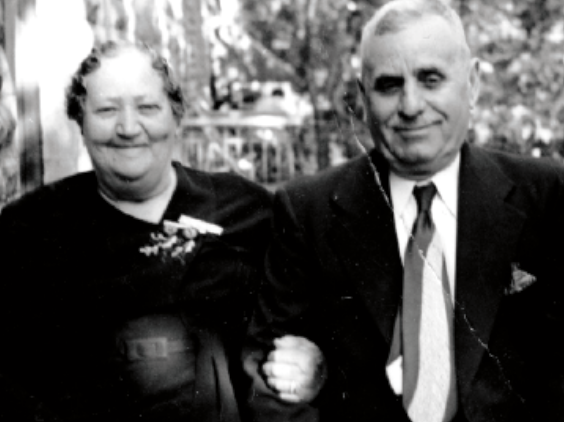
Hannah: No. We stumbled into it.
Amiel: Amazing.
Hannah: And then we spent hours, in there.
Amiel: Weeping in the office.
Hannah: Yeah. I had no idea. And I had that feeling sometimes I don’t know
if other people have this where they don’t really know why they’re upset. I was like, “why am I crying? That’s weird.” But I mean, I was really weirded out that I was emotional, but we track them through the years. So we started with records of them coming in and then we tracked them through the census through the years. It was fun. Fascinating. We could track where they lived. And also my great grandfather, Chaim, he went by both Harry and Charles because he didn’t want to go by Chaim, he picked an English name. So we saw when he switched between one English name and another
and we saw which English names she was using and we saw as the children were added and when they moved to Montreal and what jobs he had. And so year after year, child after child, and then we had the year where Sam, my grandfather was added. And then they started looking at records on him and they found his Bar Mitzvah, my grandfather’s Bar Mitzvah. So it just kept going. And we slowly had our minds blown. I had been living in Halifax for five years at that point. And it had never occurred to me that my family — I was standing where they arrived in Canada and became Canadians. I was standing there with my two month old baby. It just had never occurred to me before that this was the line between life and death for my family because they were fleeing pogroms. They came because they were being murdered.
Amiel: It’s so fascinating to me that you’ve circled back to there as your home now.
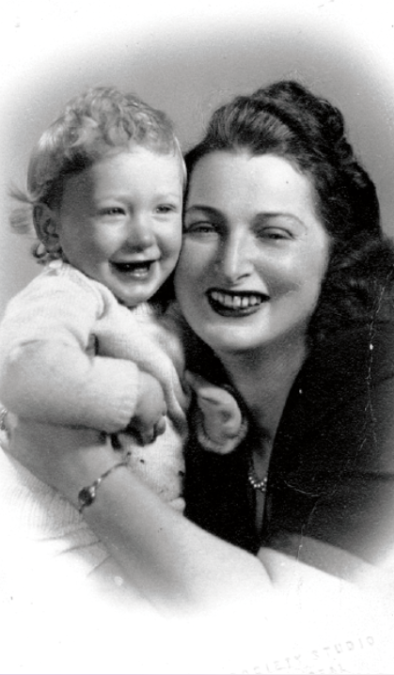
Hannah: Yeah. It’s strange. It was just weirdness. And I just happened to be standing there and be like, “oh my God. My family.” And I think,
so this is the thing that had also been happening. My son was two months old when Alan Kurdi, the Syrian boy, drowned. Whose application to become a Canadian had been stalled by Stephen Harper’s government. Drowned off of the coast of Turkey. So my son was two months old and I was looking at photographs of a two year old boy drowned as a refugee. And I think all of what happened in my mind and in that moment in the office — I’m upset. I think, you know, just because I had become a mother, and children are no longer symbolic. They’re real, you know, you can feel what it would do to your life to lose a child like that. What it would mean. So yeah, so that was all happening right around then. And then I went to Pier 21, “this is the moment of entry.” If it hadn’t been for this moment, when my family members came in, there would have been no Sam Moscovitch or Alan Moscovitch or me, or my son. It sounds so sentimental, and yet it’s such a stupid, obvious realization that I had a moment of great, you know, I was like, “that’s Canada.” It’s not like my family weren’t fleeing, they were, they were trying to get out of a bad situation, you know? So I was like, you know, there, but for the grace of God, go I.
Amiel: It’s amazing when you realize the miracle of being alive, but there you are alive.
Hannah: Yeah. It’s the most simple thing to realize. I got my life. I have my life because these people who I’ve never thought about once in my life decided to leave Romania, come to Canada. Here they are. Here is the paper record of that decision and this is where they would have stood. And now I’m standing here and here’s my son with me.
Amiel: So, and then I can just imagine your playwriting brain starting to go.
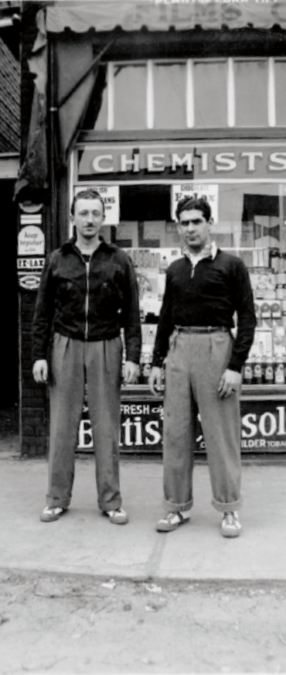
Hannah: Nope.
Amiel: No?
Hannah: No, I didn’t. I came home and I was like, “look at all this cool shit I got from Pier 21. I don’t know why I was crying about it”. They print it all out for you. You know, so you can take it home and put it in your bathroom. I brought a home this thick envelope and it was sitting in our front hallway, that’s where I left it. And then maybe two weeks later, Christian was in the shower and he came running down the stairs and he was like, “You are writing the play. It’s about your family and there’s music and it’s about refugees and your family. That’s the play.” And I was like, “oh, okay.” So that’s that. That’s how that happened.
Amiel Gladstone has worked with numerous companies across the country. For Touchstone: his play Hippies and Bolsheviks, and he directed Jason Bryden’s The Dissemblers. He was the Interim Artistic Director between Katrina and Roy Part Two. This fall, he is directing the world premiere of Tetsuro Shigematsu’s Kuroko for Vancouver Asian Canadian Theatre, and working with Veda Hille on a new musical during a residency at the Banff Centre.
— (Photo of Hannah Moscovitch by Ian Arnold)